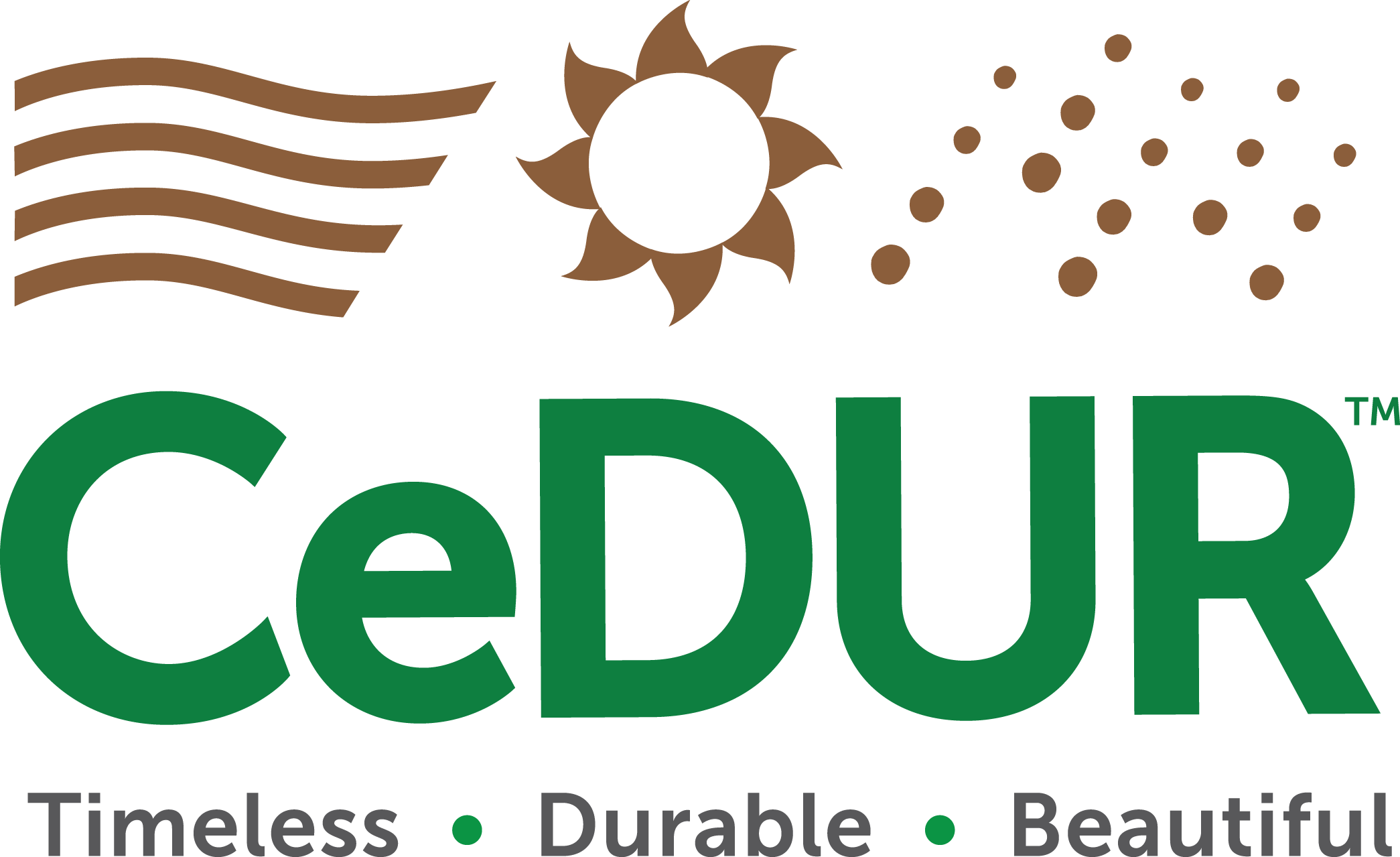Best Roofing Materials for Washington State
If you live in Washington, you know how tough the weather can be on your roof. All that rain, moisture, and the occasional snowstorm can really wear things down over time. That’s why it’s important to pick a roofing material that’s not just nice to look at, but also tough enough to handle the wet climate and last for years.
In this guide, we’ll walk you through the top roofing materials for Washington homes and why they’re a good fit for the local climate. Replacing an old roof or planning for the future, knowing your options can help you choose something built to last—and one option truly rises above the rest.
A featured image for “Best Roofing Materials for Washington State”. This is a CeDUR Synthetic Walden roof installed by Three Tree Roofing in Washington.
The Challenges of Choosing Roofing Materials in Washington State
Because Washington’s climate is wet and demanding, homeowners need a roofing that stands up to the elements year-round. Before you choose your roofing material, you should consider the weather conditions that might impact it the most, such as:
Heavy Rainfall: Lots of rain over time can lead to leaks, water damage, and rot—especially if your roof isn’t sealed properly or made to handle moisture.
High Humidity and Moisture: Washington’s damp weather makes it easy for mold, mildew, and moss to grow, which can wear down certain roofing materials over time.
Occasional Snow and Ice: Snow and ice aren’t constant here, but when they do show up, the extra weight can stress your roof and even cause damage.
Temperature Fluctuations: Some roofing materials expand and shrink with changing temperatures, which can cause wear and shorten your roof’s lifespan.
Storms and Wind: Strong winds and heavy storms can loosen or tear off shingles, so it’s important to pick a roofing material that holds up well.
5 Traditional Roofing Materials for Washington State Homes
Washington’s unique climate brings a mix of rain, moisture, and occasional snow. Luckily, there are several reliable roofing materials that handle these conditions well.
Here are some of the top traditional options for homes in the Evergreen State.
1. Metal Roofing
Metal is one of the most durable roofing materials available. It’s resistant to moisture, doesn’t rot, and can last 40 to 70 years. Plus, metal roofs shed rain and snow easily, which prevents water damage. But they can be noisy—very noisy—during heavy rain, sleet, or hail storms, that is, unless properly, and often heavily, insulated.
2. Asphalt Shingles
Asphalt shingles are popular because of their affordability and versatility, and rightfully so. They come in a variety of styles and colors, which makes them a great option for many homeowners.
However, in Washington’s damp climate, asphalt shingles are prone to moss and algae growth, which can shorten their lifespan if they are not properly maintained.
3. Cedar Roofing
Unlike other materials listed so far, cedar shakes and shingles bring a natural, rustic look to any home. And they provide good insulation while handling Washington’s wet weather. The downside? Cedar shakes may require a lot of maintenance to prevent moss and mold from taking over—especially in the state of Washington.
4. Clay Roofing
Unlike Cedar shake roofing, Clay tiles offer excellent water resistance—they’re durable—and work well in areas with heavy rain, but their weight can be an issue. More often than not, your home’s structure will need to add support to carry the extra load, a factor that immediately increases installation costs.
5. Concrete Roofing
Concrete tiles are another long-lasting option. They’re resistant to fire, moisture, and pests, which make them a solid choice for Washington homeowners. But like clay, they are heavy and may require additional structural support.
Synthetic Roofing by CeDUR, A Superior Roofing Material
Synthetic roofing materials for Washington State homeowners. This is a CeDUR Synthetic Walden roof installed by Three Tree Roofing in Washington.
While all of the above roofing materials for Washington State have their strengths, there’s one roofing material that stands out, and that’s CeDUR Synthetic Roofing. Here’s why:
Superior Weather Resistance: CeDUR roofing is designed to handle heavy rainfall, snow, and wind without warping or deteriorating, which means it can handle the Washington weather
Mold and Moss Resistance: Unlike cedar or asphalt, CeDUR doesn’t attract moss, algae, or mold, which reduces the overall maintenance needs required on your part as the homeowner.
Lightweight: Remember those heavier options from earlier? Unlike clay or concrete, CeDUR is lightweight and doesn’t require additional support. And yet, it offers the same durability—or better.
Natural Wood Appearance: Cedar shakes are often a go-to choice for their design, especially in Washington, but CeDUR mimics the look of traditional cedar shakes without the hassle of maintenance. Plus, they come in four primary options for designs: Live oak, Walden, Shiloh, and Golden Cedar.
Fire and Impact Resistance: With a Class A fire rating and strong impact resistance, CeDUR offers superior protection.
Longevity: Traditional materials degrade over time—unfortunately. But CeDUR is built to last for 50+ years. It’s that simple.
Choose CeDUR: The Best Roofing Material for Washington State Homes
Washington’s climate demands a high-quality roofing material that can stand up to moisture, moss, and unpredictable weather. And although there are many great options, CeDUR Synthetic Roofing offers the best combination of durability, beauty, and low maintenance.
In other words: If you want a roof that lasts without the constant upkeep, you should choose CeDUR synthetic roofing.
And if you’re thinking about upgrading your roof—or think you might be needing one in the future— contact us today or request a sample.


